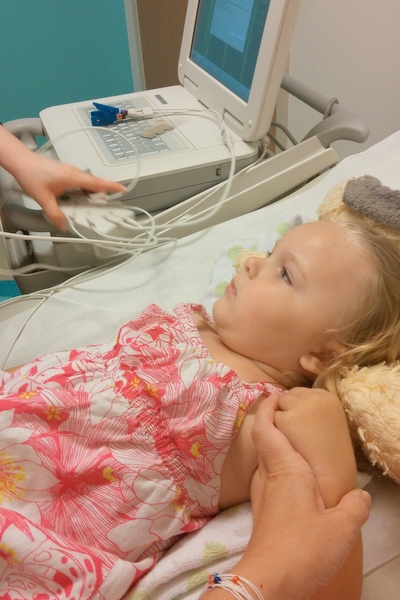As I listened to the lyrics of “Grown-Up Christmas List,” I took a moment to reflect on my list this year. Just a few months ago, it would have consisted of only one thing: a diagnosis for my daughter. But a few weeks ago, we were given some information from our geneticist that has led us all to believe we finally have answers.
With that said, if I had just one wish, it would be to stop hearing the word “but.” It gets old. And as much as I wish it were an endearing sentiment, in my world, it is not.
But she looks good.
But she talks well.
But she is hitting milestones.
But she is running around.
But she is eating.
These are all examples of what we hear on a daily basis. Yes, all of this is true — at times. However, it doesn’t negate the fact that my child has a life-altering diagnosis, one that we’re still grappling with as we try to find some solace and balance in our daily routine. All of your “buts” don’t take away her spasms, pain, choking, fatigue, moments of despair and so on.
I’m not sure if this is how people try to cope and respond to our situation. If it is, then I’m the one in the wrong, and I should be grateful for those who care and want to stay positive in a time when optimism isn’t high.
“But” often makes me feel like I should defend myself since it seems like you doubt what I have told you about my daughter in the past. It’s never easy when it feels like others are judging us. Somehow having an intuition about our child’s health can be seen as excessive in our society. I have learned more times than not that intuition is correct, and if it isn’t correct, it can be calmed by just one doctor who takes the time to listen.
I would bet that any special needs parent, including myself, has an arsenal against “buts.” I don’t use mine often and usually tend to meet them with a smile and nod. It feels useless to try and defend myself or our many appointments, blood draws and hospitalizations. And I don’t want to ever give anyone the impression that I’m not grateful for the good days and moments.
What many of you don’t see is that we as advocates of our children have argued with doctors, therapists and even genetics when we’re feeling daring or hopeless. We have even, at times, let that “but” control our fight only to move two steps back from all the progress we previously made both in diagnosis or treatment. Sleepless nights can be attributed to it as we wonder if we’re making the right decisions. “But” is actually so present in our world that it may even ruin it at times.
“But” is a simple and small word to many, but it can be hurtful for others. I challenge you — and myself as I have been guilty of using it, too — that if you use it this holiday season, use it as an endearment or a way to support someone, rather than as an objection.
The Mighty is asking the following: Tell us one thing your loved ones might not know about your experience with disability, disease or mental illness during the holidays. What would you say to teach them? If you’d like to participate, please send a blog post to mentalhealth@themighty.com. Please include a photo for the piece, a photo of yourself and 1-2 sentence bio. Check out our Submit a Story page for more about our submission guidelines.

